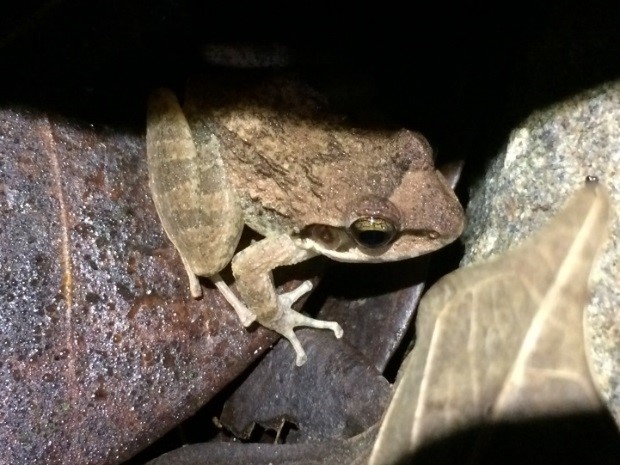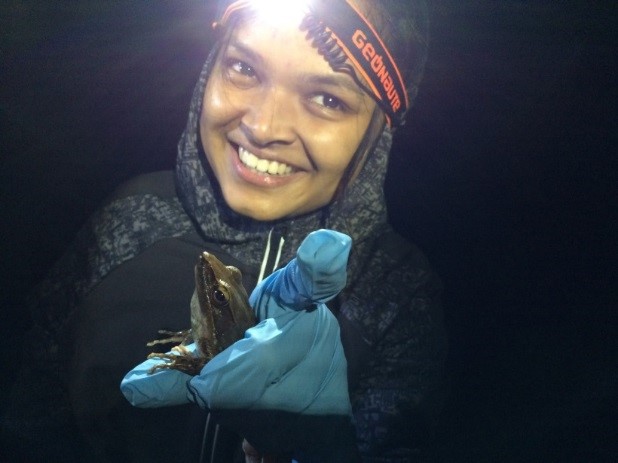ARMI scientist involved in workshop in Hyderabad, India: Long term Wildlife Monitoring, Ecological and Statistical Considerations.
The Amphibian Research and Monitoring Program has a reputation for taking wildlife monitoring to new levels using robust methods that allow synthetic data analyses across landscape scales. Because of this reputation, ARMI scientist Dr. Erin Muths was invited to lecture and mentor at a workshop in Hyderabad, India in November 2018. The workshop was titled Long term Wildlife Monitoring: Ecological and Statistical Considerations. The workshop was one component of an Indo-U.S. 21st Century Knowledge Initiative grant to Dr. Barry Noon at Colorado State University. The workshop was hosted by Dr. Karthikeyan Vasudevan at the Laboratory for the Conservation of Endangered Species (LaCONES), Centre for Cellular and Molecular Biology (CCMB). Attendees included early graduate students, post-doctoral researchers, and early career professionals. Interactions within and outside the classroom were completely positive.
The workshop focused on analytical methods, applications to particular datasets, field techniques, and examples of long-term monitoring programs (from organizational structure and methodology to data and products). The workshop material was rounded out with a variety of speakers including Dr. Arjun Gopalaswamy, Wildlife Conservation Research Unit, Oxford University, Dr. Kim McConkey, University of Nottingham-Malaysia, and Dr. Jagdish Krishnaswamy, Ashoka Trust for Research in Ecology and the Environment.
In addition to lecturing, Erin also spent time mentoring new graduate students and is, (along with Dr. David Miller, former ARMI post-doc, now at The Pennsylvania State University), a member of Gayathri Sreedharan's PhD committee (Jawaharlal Nehru Univesity, New Delhi / CCMB-LaCones). Ms Sreedharan's dissertation title is: Dynamics of enzootic/epizootic Batrachochytrium dendrobatidis infection in a community of stream amphibians from the Western Ghats.
This was a fantastic opportunity to help to build capacity in a country with stunning wildlife, but few resources for conservation. This effort illustrates ARMI's ability to address amphibian conservation needs, but also showcases the impact of USGS programs and leadership in the global community. Building partnerships and sharing information abroad deepens our understanding of the issues and increases our ability to effectively address partner science needs at home.



